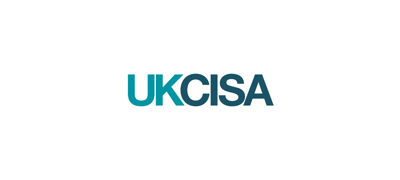Guidance for school counsellors: join our webinar on 26 February. Find out more.
Know the basics for HE England
Last updated on 23 January, 2026
Know the basics
Last updated 23 January, 2026
The basics you need to know before you start:
-
Fee status is based on law, created by governments
-
Governments make the law, not UKCISA.
-
The law is set out in government regulations which:
-
-
identify all the different ‘categories’ of student who can insist on paying at the ‘home’ rate; and
-
-
-
list all the requirements you need to meet, to fit one of those categories.
-
-
You only need to find one category that you fit (if you fit more than one, that is not a problem).
-
You need to meet every single requirement listed for a category.
-
Because the government regulations can be difficult to understand, UKCISA provides this information to help you. UKCISA does not write the regulations.
-
The regulations are different in the four different parts of the UK (England, Scotland, Wales, Northern Ireland). Only look at the pages for the part of the UK you will study in.
-
Governments make changes to the regulations (and how they interpret them) over time. Information that you read today might change tomorrow, so check the information on this website regularly.
-
The regulations give special meanings to particular terms (for example, “ordinarily resident” or the “first day of the academic year”). They are technical terms and do not mean the same as in ordinary life. Watch out for links where we explain the meaning.
-
Each educational institution uses the regulations to make its own decision about your fee status. Talk to each of them separately about their decision.
-
Educational institutions will ask you to give them some information about yourself and your family, to help them check if you fit into one of the categories for ‘home’ fees. You may be asked to provide documents (for example, a passport, or official letters or emails) to support the information you give.
-
You may also be asked to show details of an eVisa in a UKVI online account. It will help if you show the view that the eVisa holder sees, and not only the view that is generated by giving someone a share code. This is because the view generated by a share code only includes a limited amount of information. Sometimes it hides details that show that you fall into one of the categories for 'home' fees.
-
If you think an institution has made a mistake about your fee status, do not sign any document or contract agreeing to pay the ‘overseas’ rate of fee. Contact the institution immediately and ask for an explanation of the decision. After this, if you still think the decision is wrong, give the reasons why you think there has been a mistake. It is important to communicate in writing and to keep copies of all correspondence. If you are still not satisfied with the decision, contact the student advice team at the institution or its student union. You can also telephone our Advice Line to discuss your concerns, but please note that we cannot get involved in individual disputes between you and your institution.
-
Fees for long courses are usually charged one year at a time. It is not completely impossible for someone who starts their course as an ‘overseas’ fee payer to become a ‘home’ fee payer for a later year of the same course. However, it is extremely unusual. You should check for yourself whether you meet the requirements for any one of the ‘home’ fee categories each year, and talk to your fee assessor if you think you have become entitled to ‘home’ fees in time for the next year of your course. Do remember that some categories include a requirement for you to have been ordinarily resident in a particular area for three years before the start of a course. The three years are fixed in time and don’t move as you progress through your course, so you will fail the requirement every year, if you are someone who failed it at the start.
-
‘Home’ fees do not count as ‘public funds’. So you will not be in breach of an immigration condition to have “no recourse to public funds” if you are charged ‘home’ fees. The Introduction to the Immigration Rules gives a list of specific welfare benefits that count as ‘public funds’, and the list does not include education or any education funding.
-
Unfortunately, students sometimes have to leave their courses early, or repeat part or all of their courses due to accidents or illnesses during their studies. You may wish to look at options for buying insurance to provide a proportionate refund of your pre-paid course fees if you are worried about this. Whether or not you choose to buy insurance, you should be clear on what your place of study says about course fee refund options.
-
Private sector institutions often have only one level of fee, which all students must pay (instead of separate ‘home’ and ‘overseas’ rates of fee).
Next steps
Last updated 23 January, 2026
Now that you know the basics, read on to see if you can find a category of ‘home’ student in England that you fit.
Related articles
-
Definitions in HE England
This section has explanations about words and terms used in our fees information. You will need to refer to it as you read through the requirements for each category of ‘home’ student.
Sign up to our free email newsletter
Stay in touch with UKCISA and get all of our updates before anyone else.
